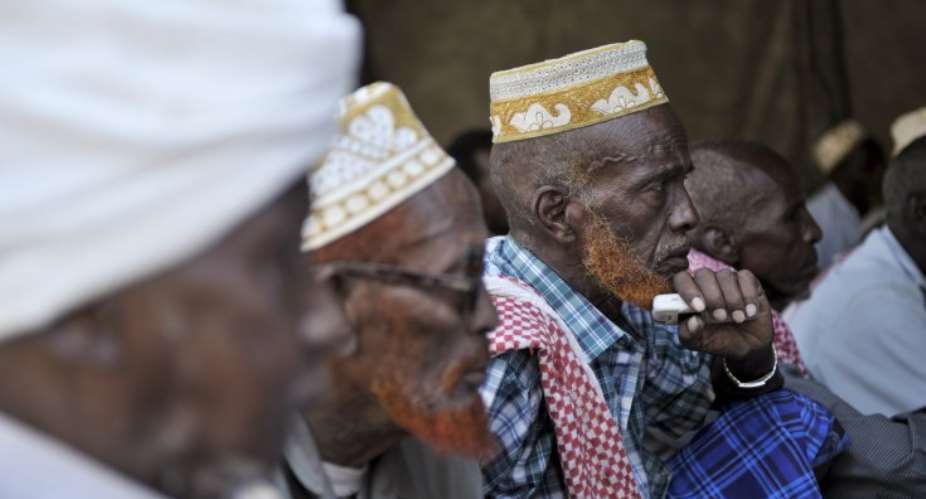Somalia, a country that has been ravaged by decades of conflict and instability, has faced significant challenges in building a legitimate and effective government. One of the key obstacles to this process has been the presence of non-state actors known as "isimada dhaqanka." These traditional community leaders, who wield significant influence over their communities, have the potential to undermine the authority of the central government and perpetuate instability.
Isimada dhaqanka, which literally means "traditional elders," have long played an important role in Somali society. They have served as arbiters of disputes, custodians of cultural traditions, and providers of social services. However, in recent years, some isimada dhaqanka have become increasingly politicized, using their influence to challenge the legitimacy of the central government and advance their own interests.
One of the main challenges posed by isimada dhaqanka is their potential to undermine the authority of the central government. By operating outside the formal structures of the state, isimada dhaqanka can challenge the legitimacy of the government and encourage their followers to reject state authority. This can create a situation where the government is unable to assert its control over certain areas, leading to a breakdown in law and order.
Moreover, isimada dhaqanka can also exacerbate existing conflicts and perpetuate violence. In some cases, these traditional leaders have been involved in inter-clan conflicts, which have led to displacement, loss of life, and a breakdown in social cohesion. These conflicts can undermine the state's efforts to promote peace and stability and can also have a negative impact on the economy.
Furthermore, isimada dhaqanka can also hinder the delivery of essential services, such as healthcare and education. In some cases, traditional leaders have refused to allow the government or non-governmental organizations to operate in their areas, citing concerns about external interference. This can leave communities without access to vital services and can perpetuate poverty and underdevelopment.
To address the challenge of isimada dhaqanka, the Somali government needs to engage with these traditional leaders and work to integrate them into the formal structures of the state. This could involve providing them with training and resources to help them operate more effectively within the government's framework. It could also involve promoting dialogue and reconciliation between different communities and addressing the root causes of conflict.Furthermore, the Somali government needs to assert its authority over the entire country and ensure that the law is enforced equally. This will require building strong institutions, promoting the rule of law, and establishing a legitimate and effective government that can deliver essential services to all citizens.
It is crucial that non-state actors or isimada dhaqanka in Somalia recognize and uphold the legitimacy of the Somali government. While non-state actors may provide certain services to society, such as security and dispute resolution, they simply cannot provide the comprehensive governance and services that a legitimate government can.
Furthermore, non-state actors can be a dangerous proposition for modern governance and democracy. Their lack of transparency, accountability, and adherence to the rule of law can lead to abuses of power and undermine the legitimacy of the government.
For Somalia to enjoy prosperity and stability, it is essential that non-state actors respect the authority and legitimacy of the government. This means supporting and participating in the democratic process, and working with the government to address concerns and issues facing society. Only by working together can Somalia achieve the peace, security, and prosperity it deserves.





 We’ll protect state wealth from opaque deals – Prof Jane Naana
We’ll protect state wealth from opaque deals – Prof Jane Naana
 Mauritania president says running for second term in June polls
Mauritania president says running for second term in June polls
 I won't ever say I was a mere driver’s mate' — Prof. Opoku-Agyemang
I won't ever say I was a mere driver’s mate' — Prof. Opoku-Agyemang
 2024 polls: 'EC struggling to defend credibility'— Prof. Opoku-Agyemang
2024 polls: 'EC struggling to defend credibility'— Prof. Opoku-Agyemang
 Akufo-Addo gov't's 'greed, unbridled arrogance, unrestrained impunity, sheer dis...
Akufo-Addo gov't's 'greed, unbridled arrogance, unrestrained impunity, sheer dis...
 Election 2024: Ghana needs an urgent reset, a leadership that is inspiring – Ma...
Election 2024: Ghana needs an urgent reset, a leadership that is inspiring – Ma...
 Partner NDC to rollout a future of limitless prospects – Prof Jane Naana Opoku-A...
Partner NDC to rollout a future of limitless prospects – Prof Jane Naana Opoku-A...
 NPP will remain in gov’t till Jesus comes — Diana Asamoah
NPP will remain in gov’t till Jesus comes — Diana Asamoah
 Sunyani Technical University demands apology from former SRC president over sex-...
Sunyani Technical University demands apology from former SRC president over sex-...
 'Dumsor' was resolved by Mahama but ‘incompetent' Akufo-Addo has destroyed the g...
'Dumsor' was resolved by Mahama but ‘incompetent' Akufo-Addo has destroyed the g...
